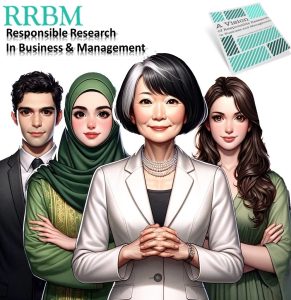Stories have immense power, revealing what mere words cannot: My journey started in electrical engineering, rooted in simulations and numbers—a purely naturalistic method. (Curious about deeper meanings? This course is for you!)
Post my master’s and years of work, a crucial question emerged: How to comprehend the non-observable, unpredictable, and interpretation-dependent aspects of life, beyond power systems? What causes diverse, yet logical decisions across different norms and contexts? Pursuing these inquiries led me to a PhD in Business and Management.
Soon, another question arose: How can I conduct responsible research? Should researchers keep their personal norms and values separate during studies? Can one truly avoid biases while studying human behaviors? Exploring these ideas brought me to the RRBM community and this transformative course.
The course began with the philosophy of science, offering a rare chance to explore it through its architects’ voices. As it progressed, I gained a new lens, enhancing my understanding of papers’ hidden meanings. The class’s welcoming and bold atmosphere boosted my confidence in sharing my thoughts. Moreover, it connected me with peers from top universities globally, fostering a supportive and collaborative network, invaluable for conducting responsible research in the solitude of my office.
I must extend a special thank you to Professor Tsui for co-founding this wonderful community and nurturing an environment where we can all flourish. The way she organizes and teaches the class is a beautiful example of a responsible approach to teaching.
My peers agree: this course is essential for any social science PhD student. It goes beyond teaching social science research to revealing responsible research’s essence. Imagine meeting responsible research pioneers and hearing their stories of perseverance, challenges, motivation, hard work, and success—both educational and inspiring.
So, story short, you’re seeking an enriching, transformative experience? Just apply and let the course do its magic!
P.S. Below is an image representing the spirit of our collective journey, featuring my team and Professor Tsui.
